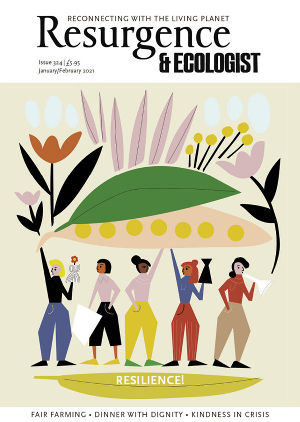Of the many clichés of Covid-19, the one I probably hate most is that the mutual aid networks during lockdown gave us a glimpse of the sort of society we could be. This always niggled at me, as if the pandemic took place in an alternative reality in which our actions somehow did not count. As obvious as it feels to say so, the months of lockdown actually happened. It was not a glimpse of the society we could be. This was the society we actually live in. As neoliberalism seeks to reassert its dominance, we would do well to remember this.
While many of us will now have had some experience of dropping a bag of shopping on a stranger’s doorstep, Pandemic Solidarity captures this unfolding in real time across the entire world, among every marginalised demographic from the disabled to those living in poverty, and in every social context from schools to prisons. Here the mutual aid network organised through WhatsApp on your street is shown to connect to a network that cradles the entire globe.
Assembled through hundreds of interviews by more than a dozen collaborators, the book reads like a hurried, fragmented diary, eager to record this incredible social phenomenon as it happened. With its ambition, scope and kitchen-sink detail, it’s easy to imagine this becoming an essential historical document of the Covid-19 crisis for decades to come. To read it in the here and now is to be genuinely moved, page after page, by people’s acts of kindness from the seemingly insignificant to the truly extraordinary.
One person who would not be surprised by any of this is Rebecca Solnit, and she fittingly provides the foreword for this collection. Using case studies like the aftermath of Hurricane Katrina, her body of work posits that while many of us assume people turn into feral Hobbesians when civilisation flickers, in fact we pull together. More recently, Rutger Bregman’s popular book Humankind reaches into evolutionary history to argue that mutual cooperation is a more natural state for humans than competition.
Covid-19 offers some vindication for such an optimistic view of people. During the first global emergency to really test this thesis, the instinctive reaction of solidarity appears to be something like a universal maxim across all modern human civilisations, everywhere in the world. No matter the political context or cultural norms, there were always groups of ordinary people organising, distributing, and showing up for their neighbours where their state was unable or unwilling to step in.
Conceived, compiled and completed in the white heat of the first wave of the virus, the one thing Pandemic Solidarity lacks is a sense of how these networks might endure or develop once the initial crisis subsided. Would they wither away once supermarket delivery slots were plentiful once more, or would they become the springboard of a resurgent, globalist emancipatory politics? Covid-19 has shown us that we are only as strong as our most vulnerable populations. As such, we must demand universalist policies, with basic income and free health care foremost among them.
More pessimistically, it is tempting to say that the limits of our solidarity have not been meaningfully tested. Would we have sentimental clapping on doorsteps during the circulation of a virus that, if caught, led to certain death? And the artificial scarcity of just-in-time supermarket supply chains was one thing, but what happens during an absolute shortage of food? We will be lucky to get to the end of this century without finding out.
At the time of writing, a second wave looks likely to engulf the UK. By the time you read these words, spring will be on the horizon. I sincerely hope that, in that long winter between, you will have felt cared for. Pandemic Solidarity gives me some confidence that you will.







